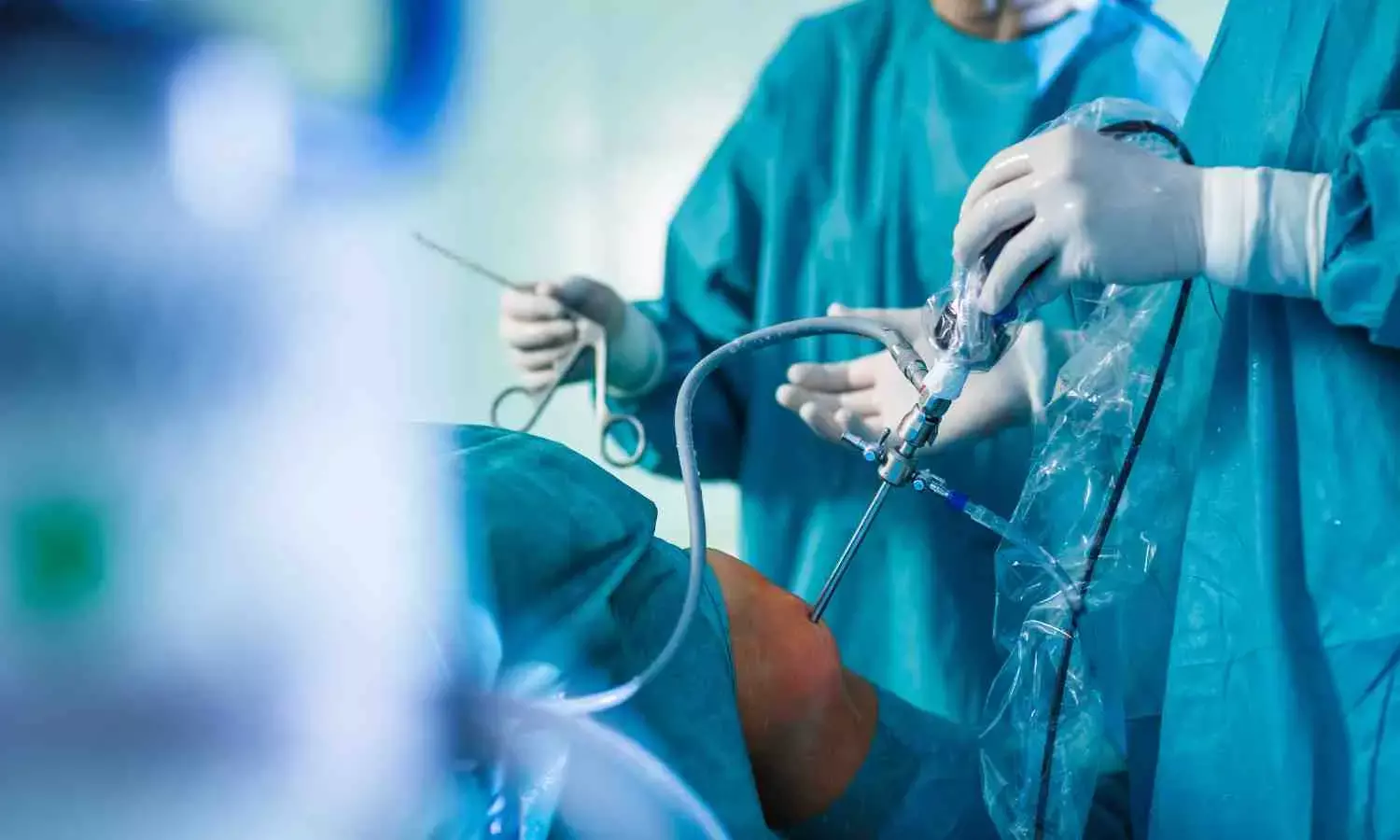- Home
- Medical news & Guidelines
- Anesthesiology
- Cardiology and CTVS
- Critical Care
- Dentistry
- Dermatology
- Diabetes and Endocrinology
- ENT
- Gastroenterology
- Medicine
- Nephrology
- Neurology
- Obstretics-Gynaecology
- Oncology
- Ophthalmology
- Orthopaedics
- Pediatrics-Neonatology
- Psychiatry
- Pulmonology
- Radiology
- Surgery
- Urology
- Laboratory Medicine
- Diet
- Nursing
- Paramedical
- Physiotherapy
- Health news
- Fact Check
- Bone Health Fact Check
- Brain Health Fact Check
- Cancer Related Fact Check
- Child Care Fact Check
- Dental and oral health fact check
- Diabetes and metabolic health fact check
- Diet and Nutrition Fact Check
- Eye and ENT Care Fact Check
- Fitness fact check
- Gut health fact check
- Heart health fact check
- Kidney health fact check
- Medical education fact check
- Men's health fact check
- Respiratory fact check
- Skin and hair care fact check
- Vaccine and Immunization fact check
- Women's health fact check
- AYUSH
- State News
- Andaman and Nicobar Islands
- Andhra Pradesh
- Arunachal Pradesh
- Assam
- Bihar
- Chandigarh
- Chattisgarh
- Dadra and Nagar Haveli
- Daman and Diu
- Delhi
- Goa
- Gujarat
- Haryana
- Himachal Pradesh
- Jammu & Kashmir
- Jharkhand
- Karnataka
- Kerala
- Ladakh
- Lakshadweep
- Madhya Pradesh
- Maharashtra
- Manipur
- Meghalaya
- Mizoram
- Nagaland
- Odisha
- Puducherry
- Punjab
- Rajasthan
- Sikkim
- Tamil Nadu
- Telangana
- Tripura
- Uttar Pradesh
- Uttrakhand
- West Bengal
- Medical Education
- Industry
Bariatric Surgery Outperforms Popular GLP-1 Weight-Loss Injections in Results and Cost, Study Shows

USA: Metabolic bariatric surgery delivers greater and more durable weight loss than popular weight-loss injections while costing less over time, reports a new study in JAMA Surgery.
Researchers led by Tyson S. Barrett of Highmark Health, Pittsburgh, found that patients with class II or III obesity who underwent surgery lost significantly more weight and incurred lower ongoing medical expenses compared with those treated with glucagon-like peptide-1 receptor agonists (GLP-1 RAs) such as semaglutide or tirzepatide. The analysis challenges the view of bariatric surgery as a last-resort option and calls for a re-examination of current treatment pathways.
The investigators used a large U.S. insurance claims database and electronic medical records to evaluate 30,458 adults with severe obesity who either received metabolic bariatric surgery—sleeve gastrectomy or gastric bypass—or started therapy with one of several GLP-1 receptor agonists. All participants had at least six months of prior insurance enrollment and a minimum of 12 months of follow-up. To ensure a fair comparison, the team applied propensity score weighting to balance differences in age, sex, smoking status, baseline health care use, and comorbidities.
The key findings of the study were as follows:
- Over two years, the average total costs were approximately $63,500 for GLP-1 therapy, compared with roughly $51,800 for bariatric surgery, resulting in a gap of nearly $11,700.
- The higher expense in the GLP-1 group was mainly due to ongoing pharmacy costs that continued into the second year.
- Patients who underwent surgery lost an average of 28% of their body weight, while those on GLP-1 therapy lost approximately 10%.
- The weight-loss advantage of surgery remained even after excluding participants with diabetes, indicating benefits beyond metabolic disease.
The authors acknowledged several limitations, including variations in follow-up times and the smaller number of participants with full clinical records. Claims data also could not always confirm why GLP-1 drugs were prescribed. Nevertheless, the real-world design offers an important glimpse of routine clinical practice outside the controlled environment of randomized trials.
The authors note that given the rapid rise in obesity prevalence and the soaring popularity of GLP-1 injections, the findings have clear implications for health systems and policymakers. Bariatric surgery, long viewed as a final step after other therapies fail, may provide a more effective and economically sustainable strategy for many patients with severe obesity. They emphasize that further studies are needed to identify patient groups who could benefit from earlier referral to surgery and to explore the potential role of combining medication with surgical approaches.
"Overall, the study highlights that metabolic bariatric surgery not only produces superior and sustained weight loss but also lowers ongoing health care costs compared with GLP-1 receptor agonist therapy, suggesting it deserves stronger consideration as a primary treatment option for class II and III obesity," the authors concluded.
Reference:
Barrett TS, Hafermann JO, Richards S, LeJeune K, Eid GM. Obesity Treatment With Bariatric Surgery vs GLP-1 Receptor Agonists. JAMA Surg. Published online September 17, 2025. doi:10.1001/jamasurg.2025.3590
Dr Kamal Kant Kohli-MBBS, DTCD- a chest specialist with more than 30 years of practice and a flair for writing clinical articles, Dr Kamal Kant Kohli joined Medical Dialogues as a Chief Editor of Medical News. Besides writing articles, as an editor, he proofreads and verifies all the medical content published on Medical Dialogues including those coming from journals, studies,medical conferences,guidelines etc. Email: drkohli@medicaldialogues.in. Contact no. 011-43720751
Next Story


